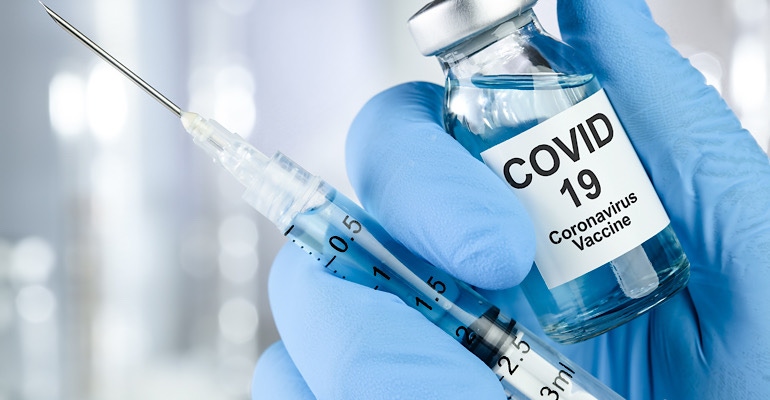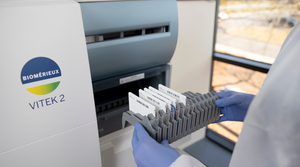What Will a COVID Vaccine Mean for Medtech?
A financial analyst shares some potential medtech implications for a COVID-19 vaccine becoming available in the United States.
September 14, 2020

While the exact timing of a COVID-19 vaccine emergency use authorization (EUA) in the United States is anything but certain, there have been recent indications to suggest a vaccine could be released by early November. With this in mind, it's time to start thinking about how such news might impact medtech stocks.
Mike Matson, a medtech analyst at Needham & Co., recently shared some potential medtech implications for a COVID-19 vaccine becoming available in the United States.
"We think that the news of a vaccine EUA could cause a significant move in both the broader stock market and medtech stocks," Matson wrote in a Sept. 8 report. "More specifically, we would expect companies that have been hurt by the pandemic (primarily companies with products used in elective procedures and/or capital equipment) to see their stocks move higher while companies that have been helped by the pandemic (primarily companies with COVID-19 tests, critical care supplies, monitoring equipment, or ventilators) to see their stocks move lower."
That said, Matson readily acknowledges that an initial EUA is only the "end of the beginning" of the pandemic and that it could take 12 months or more to complete the phase III trials and to vaccinate most of the U.S. population with certain groups, such as healthcare workers and nursing home residents, being vaccinated before others.
"So while a vaccine EUA may drive an immediate shift in sentiment, we do not expect it to drive an immediate shift in medtech fundamentals," the analyst said. "We maintain our preference for stocks with significant elective procedure exposure and remain cautious on companies with significant capital equipment exposure and/or that have benefited from pandemic-related demand."
Matson, who has been tracking elective surgery searches using Google Trends weekly since May to gauge the recovery pace of elective procedure volume in the United States, also noted that the recovery may not follow a linear path.
"But there has been a divergence in the share price performance of companies that are benefiting from the pandemic and companies that are being hurt by the pandemic," he said.
Matson thinks the real risk to the elective procedure volume recovery is whether or not enough people will be willing to get vaccinated when the time comes. He pointed to recent polls suggesting that somewhere between 30% and 60% of Americans will not get vaccinated in the first 12 months that a vaccine is available whether they should or not.
FDA Commissioner Stephen Hahn has reportedly said he is willing to consider granting an EUA for a COVID-19 vaccine for at least some types of patients before clinical trials have been completed. An FDA advisory committee is also expected to discuss the COVID-19 vaccine development and regulatory process at a public meeting on Oct. 22.
Matson said that a premature (either in reality or perception) COVID-19 vaccine approval could result in at least two significant consequences. One, he said, would be lack of public confidence in the safety and/or efficacy of the vaccine, which would therefore result in low vaccination rates; and two, less of an incentive for people to participate in other COVID-19 vaccine trials.
"We believe these two potential outcomes could result in a prolonged recovery for procedure volumes," Matson said in his report. He added that either of these scenarios would increase the risk of what he calls a W-shaped recovery.
About the Author(s)
You May Also Like



